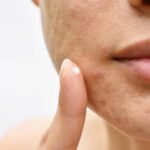Moisturizers and Cold Weather
As the seasons shift and temperatures drop, our skin begins to face a new set of challenges. Cold weather can be harsh on the skin, leading to dryness, irritation, and a compromised skin barrier. At Apollo Dermatology, we want to ensure that your skin remains healthy and hydrated throughout the colder months. Here’s why moisturizing becomes even more crucial as the weather changes and how you can protect your skin during this time.
Why Does Cold Weather Affect Your Skin?
When the temperature drops, the air becomes drier, both indoors and outdoors. This decrease in humidity leads to a loss of moisture from your skin, causing it to dry out. Additionally, cold winds and indoor heating can further strip your skin of its natural oils, making it more prone to irritation, redness, and flakiness. This is why you might notice that your skin feels tighter, rougher, or more sensitive during the winter months.
The Role of Moisturizers
Moisturizers play a critical role in maintaining your skin’s health and integrity. They work by creating a barrier that helps to retain moisture, preventing it from evaporating from the surface of your skin. This barrier not only keeps your skin hydrated but also protects it from environmental aggressors, such as cold winds and pollution.
In the colder months, your regular skincare routine might need a bit of an upgrade to combat the harsher conditions. Switching to a richer, more emollient moisturizer can help provide the extra nourishment your skin needs. Look for ingredients like hyaluronic acid, glycerin, ceramides, and shea butter, which are known for their hydrating and protective properties.
Tips for Moisturizing in Cold Weather
- Moisturize Immediately After Cleansing: Apply your moisturizer while your skin is still slightly damp after washing your face or showering. This helps to lock in moisture more effectively.
- Choose the Right Formula: As mentioned, a heavier moisturizer may be necessary during the winter. If you have oily or acne-prone skin, look for non-comedogenic options that won’t clog your pores.
- Don’t Forget Your Hands and Feet: These areas are often neglected but can become especially dry in cold weather. Use a thick, nourishing cream to keep your hands and feet soft and smooth.
- Use a Humidifier: Indoor heating can dry out the air in your home, leading to drier skin. Using a humidifier can help maintain moisture levels in the air, which in turn, helps keep your skin hydrated.
- Stay Hydrated: Remember that hydration comes from within as well. Drinking plenty of water is essential for overall skin health, even when it’s cold outside.
- Protect Your Skin from the Elements: When venturing outside, cover exposed skin with scarves, gloves, and hats to shield it from the cold and wind. This extra layer of protection can prevent moisture loss and irritation.
When to See a Dermatologist
If you’re experiencing persistent dryness, irritation, or any other skin concerns despite moisturizing, it may be time to consult with a dermatologist. Sometimes, underlying conditions like eczema or psoriasis can flare up during the colder months, and professional care may be necessary.
At Apollo Dermatology, we’re here to help you keep your skin healthy and radiant all year round. If you have any questions or need personalized skincare advice, don’t hesitate to reach out to our team.
Conclusion
Moisturizing is not just a cosmetic concern—it’s an essential step in maintaining your skin’s health, especially as the weather turns colder. By adapting your skincare routine to meet the demands of the season, you can protect your skin from the drying effects of cold weather and keep it looking and feeling its best.
Remember, your skin is your body’s first line of defense against the elements. Treat it with the care it deserves, and it will reward you with a healthy, glowing complexion throughout the winter and beyond.
Stay warm, stay moisturized, and stay beautiful!
– The Apollo Dermatology Team
Schedule a consultation today or call us at 248-436-4888 to to make an appointment.
















